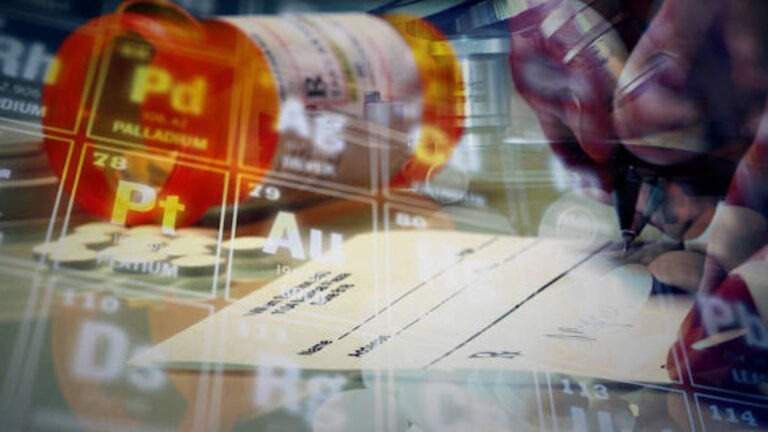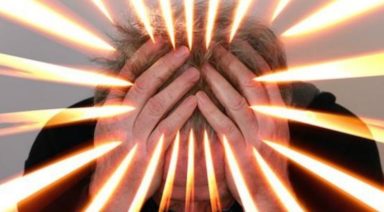Broken Heart Syndrome: Can You Live With a Broken Heart?

In 1971, at the peak of their career, the Beegees music group launched a Grammy Award winning song called “How Do You Mend a Broken Heart?” The lyrics pleaded, “Please help me mend my broken heart…And let me live again.” The song resonated with audiences around the world who had long been familiar with the experience of a broken heart.
The idea that the heart can be metaphorically broken is ages-old and has been forwarded by myth, religion, and literature throughout the world. But with the progress of science, the idea has moved from metaphor to something more literal, embodied in what has been termed “broken heart syndrome.” While having a broken heart as the result of a romantic breakup may have sent the Beegees swooning, there are more serious implications when broken hearts result from the death of a loved one.
What is Broken Heart Syndrome?
Broken heart syndrome is defined by the Cleveland Clinic as “a group of symptoms similar to those of a heart attack, occurring in response to a physical or emotional stress. Most people affected by broken heart syndrome think they are having a heart attack” because its symptoms may include shortness of breath and chest pain, which are similar to both conditions.
Cardiologist Holly Andersen, MD, scientific adviser for the Women’s Heart Alliance, said that the condition can be treated and even heal untreated, but it can also cause heart arrhythmias and sudden death. She said, that “you don’t have to have any predisposing disease, and you could still be susceptible to sudden death…because of overwhelming emotional stress.”

www.health.harvard.edu
An astonishing approximation of 1.2 million people were reported as having a myocardial infarction ( an interruption of blood supply to the heart) in 2007. About 1 percent of those, according to the National Heart, Lung and Blood Institute, are said to have undergone broken heart syndrome.
The broken heart syndrome medical term is Takotsubo cardiomyopathy, named after an octopus trap due to the similarities in shape the heart takes when suffering from the illness. Since it was first recognized officially in Japan in 1990, it has been studied extensively.
More than 90 percent of reported cases, according to Harvard researchers, are in women ages 58 to 75, and the syndrome causes “a weakening of the left ventricle, the heart’s main pumping chamber, usually as the result of severe emotional or physical stress, such as a sudden illness, the loss of a loved one, a serious accident, or a natural disaster such as an earthquake.”
The Death of Carrie Fisher and Her Mother Debbie Reynolds
A great many people are familiar with — or know someone who has experienced — the death of a person that quickly led to the death of a close relative. It’s as if the one death was so shocking that it somehow short-circuited the heart of the surviving relative(s).
The world was witness to this phenomenon not long ago, in a high profile case, when famed actress Carrie Fisher (Star Wars’ Princess Leah) suddenly passed away on December 28, 2016, only to have her famous actress-mother, Debbie Reynolds, die the next day. Hollywood Reporter explained, “Reynolds…was taken by ambulance to a hospital the day after Fisher died.” Her son, Todd Fisher, told the Associated Press that his mother had said, “I want to be with Carrie…And then she was gone.”
Writing for Psychology Today, therapist Kristin Meekhof explained that, after her husband died she began to do research for her book, A Widow’s Guide to Healing. She said, “I wanted to know and understand how other widows coped with grief, so I interviewed dozens of widows. Their age and financial, educational, and religious backgrounds varied. A widow named Julie, 34, said, ‘For about six months I had heart palpitations. Sometimes it felt like I was having a heart attack and other times my heart would beat out of my chest.’”
Psychological effects of Broken Heart Syndrome
Beyond the physical symptoms of broken heart syndrome are psychological ones. Psychologist Guy Winch, PhD explained that “heartbreak activates the same mechanisms in the brain that get activated when addicts are withdrawing from substances like cocaine and opioids. These powerful withdrawal symptoms from the loss of love impact our ability to think, focus, and function in the broadest terms.”
And, noted Winch, “When our heart is broken, our brain will generate intrusive thoughts of our ex that invade our thoughts without warning. It may be a mental image of the partner, a snippet of conversation, a memory, or some other reminder. Each time such a thought appears, it interrupts us, reopens our wound, reactivates our emotional pain, and triggers our withdrawal symptoms.
Given that intrusive thoughts can occur dozens of times in an hour, and how significantly they can set us back, it is clear why so many of us struggle to get over heartbreak and recover in a timely manner.”
Healing From Broken Heart Syndrome Naturally
Dr. Ross Walker, an expert in the field of preventive cardiology, explained, “Although superficial interactions are of no value in this situation, staying close to the other important, supportive people may ease the suffering somewhat. Being held and comforted by important members of your family and close friends is an important part of healing the horrible wounds experienced when your heart is breaking… Strangely, the most important tip I can give in this situation is to feel and accept the pain. You are supposed to feel bad when your heart is broken and often by not trying to fight this emotion, the dreadful feelings will ease somewhat.”
This close relationship between brain, mind, and body, is embodied in heart-brain coherence, a biological occurrence that Gregg Braden has discussed in his writings and videos. He explained that there is a “never-ending conversation of emotion-based signals between our hearts and our brains, also known as the heart brain connection.
The reason this conversation is so important is because the quality of the emotional signal our hearts sends to our brains determines what kind of chemicals our brains release into our bodies.” Braden explains that when we learn how to help the heart and brain work in harmony this is not only good for healing, but it is also a means of prevention of future health issues.
When it comes to matters of the heart, there is an unseen connection that is still beyond the ken of modern science. What people have experienced for millennia has only recently been officially termed “broken heart syndrome.” This is one more step toward modern medicine’s recognition that the mind, body, brain, and consciousness may truly be a singular network that requires a holistic health paradigm to understand and treat.
Study Finds Anti-Inflammatory Meds Are Causing Chronic Pain

A groundbreaking new study suggests that commonly used anti-inflammatory drugs and steroids may cause pain to become chronic. Could this lead to a dramatic paradigm shift in how pain is managed and prevented?
For the vast majority of people in acute pain, taking an over-the-counter anti-inflammatory, such as ibuprofen is the usual course of action. Inflammation has, for decades, been seen as a cause of pain and its control, the goal of patients and doctors. A new study suggests, however, that inflammation may actually be necessary to prevent pain from becoming chronic.
Given today’s overwhelming prevalence of chronic pain — pain that persists for more than three months — scientists have lately been turning their focus to studying the process by which acute pain transitions into more lasting and debilitating pain.
Researchers at McGill University recently completed a study in which they observed this process, using several methods. First, they looked at patients with lower back and facial pain.
Upon analysis of their immune cell samples, the scientists were surprised to find that those whose pain resolved showed an intense spike in the activity of inflammatory genes during the acute pain stages, which then rapidly diminished within three months.




































